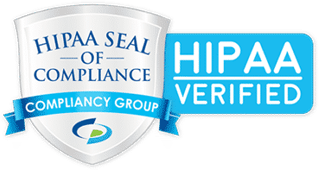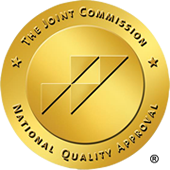Addiction and PTSD Treatment Center in Texas
At Origins Texas Recovery in South Padre Island, Texas, we specialize in dual diagnosis treatment for PTSD and addiction. Our compassionate, evidence-based programs help individuals heal from trauma while providing the support needed to break free from addiction. With personalized care and a holistic approach, we’re committed to helping individuals regain control and find long-term healing.

What is Trauma?

What is Stress?
Contact Our Admissions Team Today
How Are Trauma and Stress Connected?
For many, this stress becomes a reason to turn to substances like alcohol or drugs, hoping they’ll numb the pain or provide a break from all the heavy feelings. But while substances may offer a temporary escape, they don’t fix the root of the problem. Instead, they often make things worse. The more someone relies on substances to cope, the harder it is to break free from the cycle. The trauma and stress keep building, and so does the dependency on substances. It’s a tough cycle to get out of, but with the right help and support, it’s possible to heal from both trauma and addiction at the same time.
Types of Stress Disorders
This is a short-term reaction to a traumatic event, with symptoms appearing within three days to a month after the event. Common signs include flashbacks, nightmares, and heightened anxiety. For example, someone who has recently been in a car accident might experience intense fear or difficulty sleeping.
Unlike ASD, PTSD symptoms persist for over a month and can last for years, severely affecting a person’s ability to function. Individuals with PTSD may experience constant reliving of the traumatic event, emotional numbness, and hyperarousal. For instance, a combat veteran may struggle with flashbacks and a heightened sense of alertness long after returning home.
These occur when someone struggles to cope with a significant life change or stressor, leading to emotional or behavioral symptoms that interfere with everyday life. Examples include feeling overwhelmed after a job loss or experiencing severe sadness and anxiety after a divorce, which makes it difficult to focus on daily tasks.
Characterized by excessive worry and anxiety, GAD often results from ongoing stressors. People with GAD may worry excessively about work, health, or family, even when there’s no immediate reason for concern. For example, someone might constantly worry about their job performance, even when there’s no evidence that it’s at risk.

Signs and Symptoms of Trauma and Substance Abuse
Physical Effects
- Chronic pain or headaches
- Sleep disturbances
- Fatigue or exhaustion
- Weight fluctuations
Psychological Effects
- Anxiety, depression, or mood swings
- Flashbacks or nightmares
- Difficulty concentrating or memory problems
- Heightened irritability or anger
Testimonials
![]()
![]()
![]()
![]()
![]()
Victoria H
I couldn’t recommend Origins more, I first attended their IOP program, then their residential program in South Padre. I’m writing this today a year and a half sober and going strong. Origins has literally saved my life in more ways than one.
![]()
![]()
![]()
![]()
![]()
Emily W
The clinicians are knowledgeable and skilled in a way that is always helpful and never harmful. This program brought me lasting healing and freedom.
![]()
![]()
![]()
![]()
![]()
Mary L
I cannot say enough about Hannah’s House. I entered broken, tired and far more sick than I realized. I was treated with kindness, love, patience and respect by all. I was so frightened to go but sad to leave, that speaks volumes. Thank you from the bottom of my heart to all who put me back together, I am eternally grateful.
![]()
![]()
![]()
![]()
![]()
Jack W
I struggled with my sobriety for over 5 years, but they were able to help me through the 12 steps of AA. I have been sober ever since my experience here. I’ll be hitting 2 years of sobriety in 22 days, thanks to this treatment center. No matter where you go, it’s all about your level of commitment towards gaining a better life ?
![]()
![]()
![]()
![]()
![]()
Jazmine R
Origins was exactly what I needed. The staff were incredibly knowledgeable, compassionate, and helpful. They come with years of experience and consider each individual they’re helping. If you’re looking for a facility that will truly care as much as you/your parents do, or are desperate for a miracle — I can’t recommend Origins more! ❤️
Trauma as a Risk Factor for Substance Abuse
National data reveals widespread substance use disorders, and these trends are likely reflected in Texas. The opioid crisis has worsened this problem, putting immense pressure on individuals and communities. Understanding how trauma, stress, PTSD, and addiction are connected is vital for developing effective solutions that address the root causes and offer real hope for recovery.

The Relationship Between Post-Traumatic Stress Disorder (PTSD) and Addiction
For example, a soldier who saw traumatic events in war might have flashbacks and nightmares. They might start drinking to try and forget these memories and calm their anxiety. Or, someone who experienced abuse as a child might use drugs to avoid the painful emotions and memories associated with the trauma. In both cases, the substances might provide short-term relief, but they can lead to dependence and make both the PTSD and the addiction harder to overcome. This cycle of self-medication can be very difficult to break without professional help. It’s important to address both the PTSD and the addiction together for effective, lasting recovery.
Causes of PTSD and Addiction
Exposure to life-threatening situations, sexual assault, combat, or childhood abuse can trigger PTSD, significantly increasing the risk of addiction. The severity and frequency of the trauma play a key role.
A family history of mental health disorders, including addiction, increases susceptibility to both PTSD and substance abuse. Genetics can influence how the brain responds to stress. Specifically, someone with a parent who struggled with addiction may be more vulnerable to developing PTSD and a substance use disorder after a traumatic event.
High-stress environments, like those with violence or poverty, contribute to both PTSD and addiction. Lack of resources and exposure to substance use also increase risk.
Nationally Recognized & Accredited




Treatments for PTSD and Addiction
Dual diagnosis treatment involves treating both PTSD and addiction simultaneously. It is a specialized approach designed to address the underlying trauma and the addiction, improving outcomes for individuals with co-occurring disorders.
- Cognitive Behavioral Therapy (CBT): A widely used treatment that helps individuals identify and change harmful thought patterns and behaviors associated with trauma and addiction.
- Trauma-Focused Therapy: A form of therapy specifically designed to help individuals process traumatic events and develop healthy coping strategies.
- Eye Movement Desensitization and Reprocessing (EMDR): A therapeutic technique that helps individuals process distressing memories and reduce the emotional charge of traumatic events.
- Antidepressants: Often prescribed for PTSD and depression, SSRIs or SNRIs can help regulate mood and anxiety.
- Anti-anxiety Medications: Benzodiazepines or other medications may help manage anxiety, but they should be used cautiously in individuals with a history of addiction.
- Medications for Addiction: Medications like methadone or buprenorphine can help manage opioid addiction, while naltrexone or disulfiram may assist with alcohol addiction.













